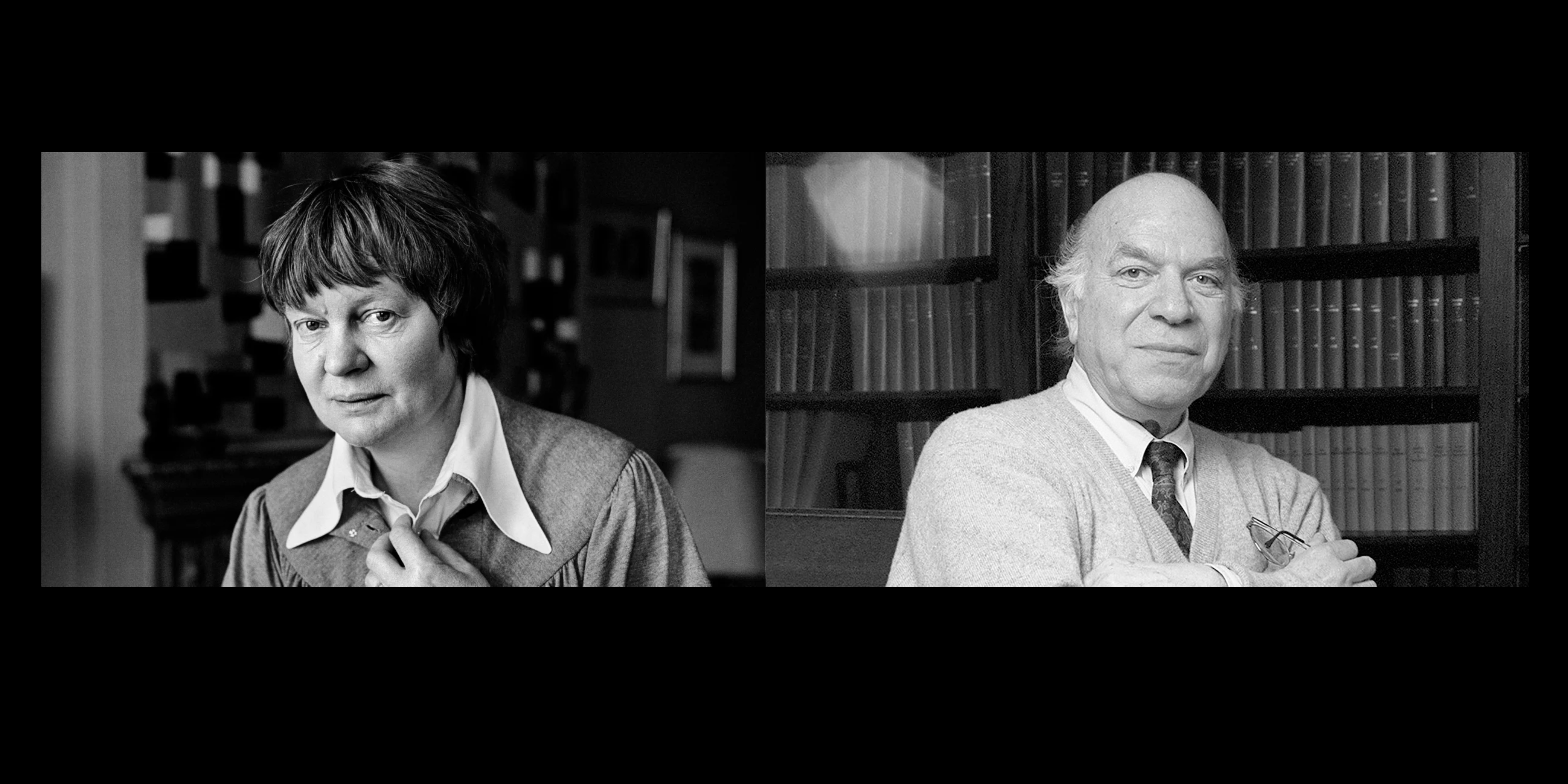
Murdoch and Cavell
PHIL 541R: Murdoch and Cavell will be taught on Mondays from 1:00 pm - 3:45 pm at the Emory University Center for Ethics (ground floor of 1531 Dickey Drive).
About PHIL 541R: Murdoch & Cavell (Spring 2026)
What might ethics entail if it refuses both voluntarism and the full externalization of conscience into patterns and plays of social scripts? What concepts and operations or, more generally, what resources does moral philosophy need if it is to work through this refusal in a generative manner? In different ways, the work of Iris Murdoch (1919-1999) and Stanley Cavell (1926-2018) provide live replies to these questions. Moreover, their replies consider philosophy’s relation to the arts and meet in the idea of moral perfection, and in a manner that might generate a more comprehensive perfectionism.
Suitability for a Range of Students & Working Professionals
While the course is offered as part of Emory's graduate-level philosphy program, as a standalone elective it is also suitable for a range of other students. This course is available to students seeking graduate degrees at Emory, non-degree seeking students and working professionals (including faculty and staff in all of Emory’s Schools). Because it is a graduate course, anyone applying to take this course must have previously completed at least a bachelor’s degree. Students who are not currently pursuing a graduate degree at Emory University will need to apply to be non-degree seeking students in special standing with the Laney Graduate School.
- For those seeking graduate degrees at Emory, it is important that you discuss this course’s suitability to meet your degree requirements with your academic advisor and/or director of graduate studies. This is a three credit hour course that counts as an elective in the Philosophy Department. The Philosophy Department is not responsible for the degree requirements of other programs at Emory.
- For those not seeking a degree at Emory, the tuition rates are determined by the Laney Graduate School. The Laney Graduate School charges $2,711 per credit hour. As the course is three credit hours, the tuition costs $8,133.
- For Emory faculty and staff, the tuition costs for this course may be covered by the Emory Courtesy Scholarship. For more information, please visit the Courtesy Scholarship webpage and contact HR.
In order to apply to take this course as a non-Emory student, you will have to apply as a non-degree Laney Graduate School student. For the Spring 2026 term, the non-degree student enrollment deadline is January 5, 2026.
For more information about this course, please email: mabioethics@emory.edu.
Meet the Course Leader
John Lysaker is the William R. Kenan University Professor. Educated at Kenyon College and Vanderbilt University, he joined Emory's Philosophy Department in 2009 after thirteen years at the University of Oregon. He came to the Center for Ethics in the summer of 2024.
Lysaker's central interest remains the good life writ large and various phenomena that enable and/or frustrate its emergence, including character and metacognition, artworks, serious mental illness, and friendship.
As a scholar, he has authored six monographs, co-authored another, and co-edited a collection of essays. In addition, he has written eighty scholarly articles and chapters and delivered over a hundred lectures and presentations. Recent publications have appeared in JAMA Psychiatry, The Georgia Review, and The Journal of Speculative Philosophy. Current work focuses on friendship as a core good and source of moral growth, moral perfectionism as an essential element of ethical life, virtues such as honesty, integrity, and generosity, and the possibility for shared deliberation in the development and pursuit of treatment protocols for people struggling with psychosis.
In addition to regular scholarly presentations, Lysaker is committed to public engagement, ranging from high school groups to art museums, religious communities, and civic agencies. All spaces are ethics spaces on his view, and ripe for conversations that can be prove transformative.